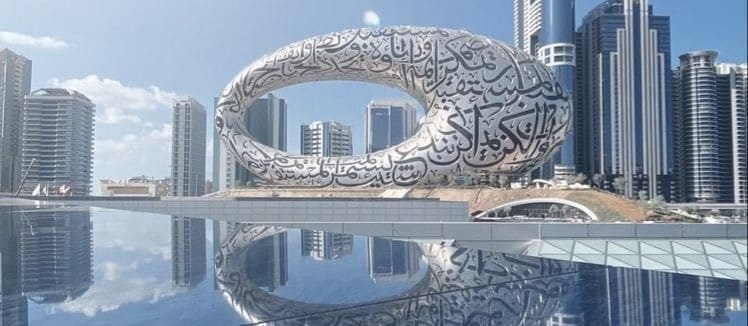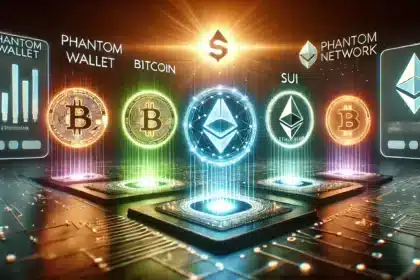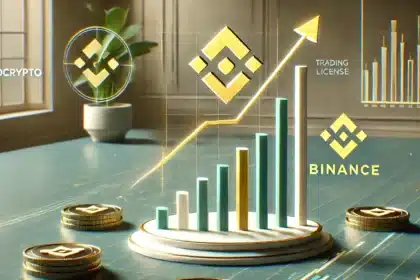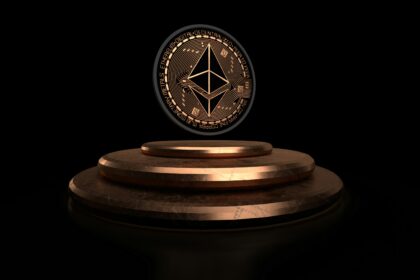Dubai Customs has unveiled a new blockchain platform, marking a significant step in smoothing out supply chain frictions both within Dubai and internationally. The initiative is part of a broader strategy to solidify Dubai’s status as a leading smart city, according to a statement from the Dubai Media Office on July 8.
“This innovation reflects our vision to make Dubai a global hub for trade and logistics,” stated Ahmed bin Sulayem, Chairman of the Ports, Customs, and Free Zone Corporation. He highlighted that blockchain technology would drastically reduce the time and effort needed by simplifying numerous procedures and speeding up customs clearances and commercial transactions.
It also aims to enhance supply chain transparency by enabling tamper-proof data sharing and reducing the extensive paperwork usually required in these processes.
Dr. Abdullah Busnad, Director General of Dubai Customs, emphasized the benefits of blockchain in the logistical sector, noting,
“The goal is to make the business environment in Dubai smoother, more streamlined, and transparent.”
Blockchains have long been recognized for their potential in tracking the real-time movement of items in supply chains and combating fraud and counterfeiting.
However, despite the potential, there are hurdles to its mass adoption. For instance, a blockchain supply chain platform developed by IBM and Danish logistics firm Maersk was discontinued in November 2022 due to a lack of global industry collaboration.
Despite these challenges, many other blockchain platforms continue to thrive in the supply chain sector. VeChain and Chainlink, launched in 2016 and 2019 respectively, are prominent players in the field, offering smart contract capabilities and supply chain automation. The Hong Kong-based Global Shipping Business Network (GSBN) has also emerged as a key player.
Furthermore, Dubai Customs had previously launched a blockchain-based platform in January 2020 to facilitate cross-border e-commerce, continuing its commitment to integrating advanced technology into its operations.

Dubai Customs Blockchain Platform: Benefits for Local Supply Chains
The impact of the Dubai Customs blockchain platform on local supply chains is expected to be substantial. The platform addresses common challenges By providing a secure and transparent environment for data exchange, such as delays and errors in paper-based systems. This means faster processing times and reduced operational costs, which can be a game-changer for businesses operating within Dubai’s bustling trade environment.
Blockchain technology, which underpins cryptocurrencies like Bitcoin and Ethereum, offers a decentralized network where information can be stored securely and accessed in real-time by all stakeholders. This enhances transparency and boosts trust among users, which is crucial in complex supply chains.
Dubai Customs Blockchain Platform: Incorporating Cryptocurrencies
While the Dubai Customs blockchain platform’s primary aim is to enhance supply chain operations, it also opens up possibilities for integrating cryptocurrencies into the trade and customs ecosystem. With Bitcoin (BTC) and Ethereum (ETH) becoming increasingly accepted as means of payment, their inclusion in the platform could further simplify transactions, making them faster and potentially cheaper than traditional methods.
This integration could attract more businesses to use the platform, leveraging cryptocurrencies’ global and decentralized nature to enhance their operational efficiency.
Dubai Customs Blockchain Platform: Staying Updated with Crypto Developments
The launch of the Dubai Customs blockchain platform marks a significant milestone in Dubai’s journey towards becoming a fully integrated smart city. As the platform develops, it will likely become a model for other cities and customs authorities around the world.
The move also highlights the increasing relevance of blockchain technology and cryptocurrencies in today’s digital economy. With Bitcoin, Ethereum, and other crypto updates continuously shaping the market, Dubai’s embrace of these technologies places it at the forefront of the smart city innovation race.
In summary, the Dubai Customs blockchain platform is more than just a technological upgrade; it is a strategic development that could redefine how trade is conducted in one of the world’s busiest commerce hubs. This initiative not only supports Dubai’s smart city objectives but also sets a new standard for integrating advanced technologies to enhance city operations and services.
For those interested in the latest developments in the world of blockchain and cryptocurrencies, staying connected to sources like The BIT Journal is essential. As the technology evolves and more applications are discovered, platforms like the Dubai Customs blockchain solution illustrate the practical benefits of blockchain beyond just the financial sector.




























